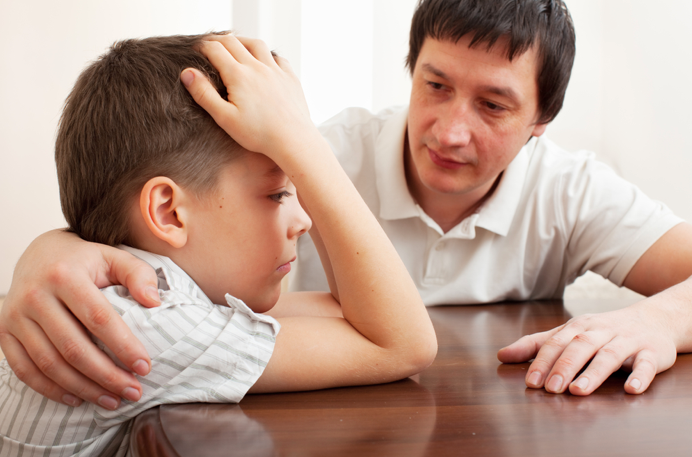
Children view the world quite differently than adults do. In order to cater to their needs and create a powerful bond, it’s important for parents to really think like their children and take their perspective into consideration.
Taking the time to learn how your little one thinks and feels will enable you to understand their reactions and better relate to them. Here are some tips to help you see the world through from your child’s perspective.
Understand Their Temperament
It isn’t always easy to understand someone else’s behavior, especially a child. Learning your little one’s personality can help you better understand how she views the world, as well as her behavior.
Temperament refers to the traits a person is born with and they help each individual make sense of the world. They also play a large role in how a person reacts to different situations. If you don’t understand your child’s temperament, you can easily label your child without really understanding her.
There are four key temperaments, and each one has its own traits:
- Sanguine: active, social, lively
- Choleric: irritable, short-tempered, fast-paced
- Melancholic: analytical, traditional, orderly
- Phlegmatic: laid-back, peaceful, tolerant
Be Respectful
Showing your child respect is one of the most important things that you can do for him. It will make him feel good about himself, lets him know that he’s important, and shows him that you understand his point-of-view.
Listening to your child and taking her opinions into consideration are excellent ways to show respect. You should also let her know that you care about how she feels about things, and take her needs and desires into consideration; for example, when she needs space or privacy, respect her wishes.
Be Empathetic

Since children view the world differently than adults, they internalize situations differently. For example, if a toddler doesn’t get to drink out of his favorite cup, he may have a meltdown, not because he’s being difficult, but because he really loves that cup. Or, a school-aged child might cry after her soccer team loses a match because she’s truly heartbroken.
How you react to your child’s reactions makes all the difference in the world. Instead of mocking or discrediting your child’s feelings, or labeling them as silly or irrational, listen to your child.
Think about his or her temperament and try to understand how it affects reactions. Guide your child by showing them how to react to situations in a more positive manner. Using phrases like, “I understand” and “I see why this is upsetting” will offer your child reassurance and improve your bond.
Reflect On Your Childhood
Remember what it was like when you were a child and how you viewed the world. It can be easy for parents to forget how they felt when they were growing up because they are so consumed with everything going on in their adult lives; however, taking the time to reflect on your own feelings and views as a child will help you better understand and relate to your child.
When you make understanding your child’s point-of-view a priority, she’ll have more trust in you, and you’ll have a stronger, more powerful bond.
Amy Williams is a freelance journalist based in Southern California and the mother of two. As a parent, she enjoys spreading the word on positive parenting techniques in the digital age and raising awareness on issues like cyberbullying and online safety. Follow her on Twitter at @AmyKWilliams1.



